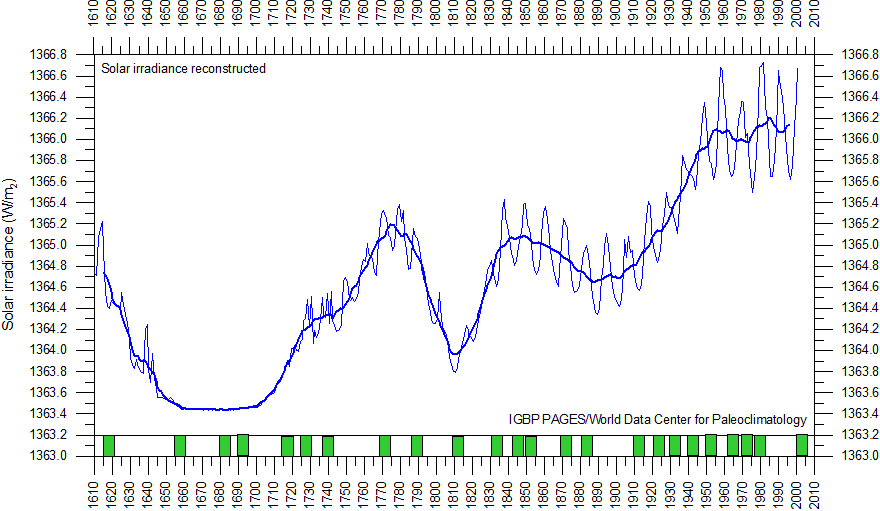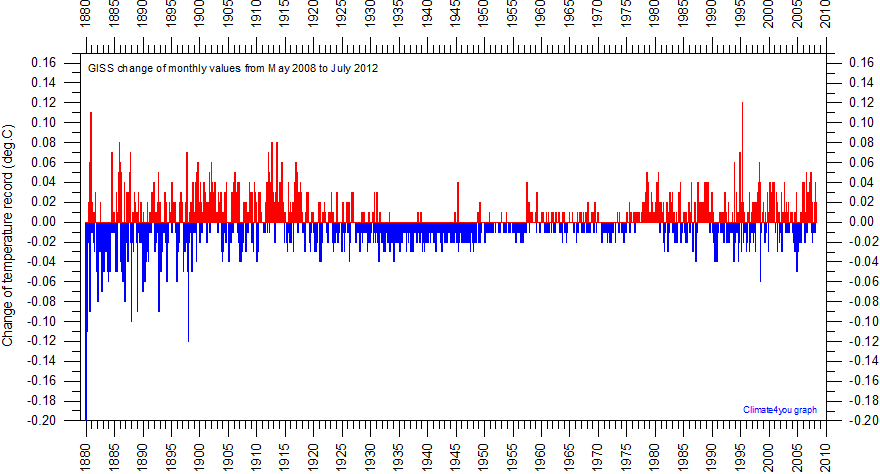Well, if you track history, there are some interesting correlations.
In the 19th century, there were two huge volcanic eruptions: Krakatoa and Tambora. The TSI drops severely during that period. The impact of these two events leads right up to the beginning of the much discussed "Instrument Record" that measure the increase of the global climate from the coldest point in the last 200 years. If the Instrument Record were to track the climate from about a 50 years before or 20 years after, the change would be quite different.
Again, in reviewing the table below, there are various versions of temperature by various sources that do not agree.
Anecdotally, Mary Shelley wrote the story about Frankenstein during the cold period that was probably caused by these two eruptions and depicts the monster and all characters against a background of cold and ice.
climate4you welcome
GISS Maturity diagram per 15 August 2012. Compare with the diagram per 15 September 2012.
Based on the above it is not possible to conclude which of the above five databases represents the best estimate on global temperature variations. The answer to this question remains elusive. All five databases are the result of much painstaking work, and they all represent admirable attempts towards establishing an estimate of recent global temperature changes. At the same time it should however be noted, that a temperature record which keeps on changing the past hardly can qualify as being correct. With this in mind, it is interesting that none of the global temperature records shown above are characterised by high temporal stability. Presumably this illustrates how difficult it is to calculate a meaningful global average temperature. A re-read of
Essex et al. 2006 might be worthwhile. In addition to this, surface air temperature remains a poor indicator of global climate heat changes, as air has relatively little mass associated with it.
Ocean heat changes are the dominant factor for global heat changes.


